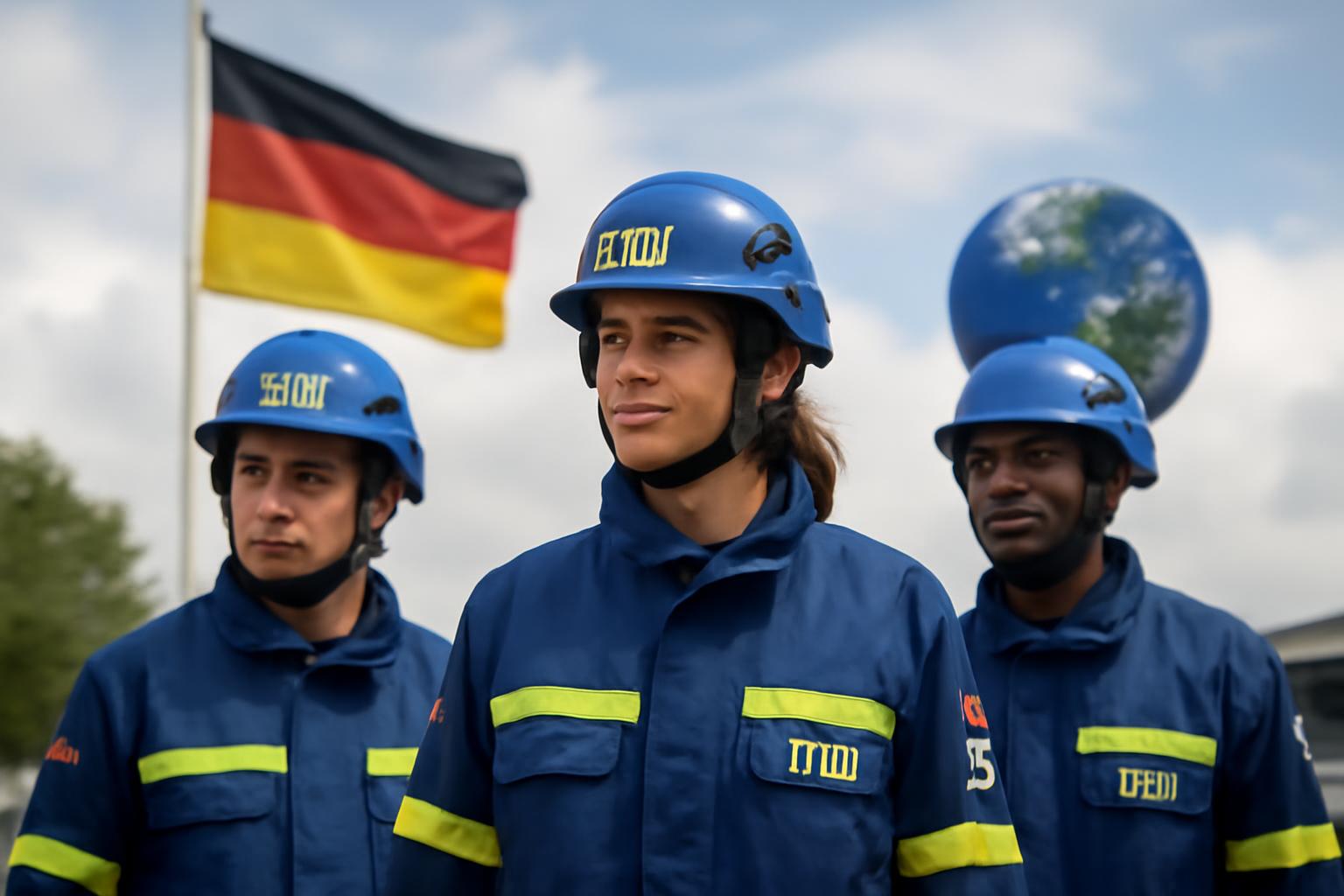A volunteer civil protection service in Germany marks a long arc of service: from postwar reconstruction to a modern, internationally engaged network. Its training crafts teams that rely on subtle signals, not loud commands, as when a search dog and handler synchronize through quiet gestures. Individual stories anchor the work—a twelve-year veteran recalling a 2023 earthquake in eastern Turkey and the memory of two children lost—yet the organization as a whole has grown into a broad effort that spans national duties and foreign deployments. Founded mid‑century in Bonn by a statesman and an engineer, the group today counts tens of thousands of volunteers, who continually train, support one another after deployments, and sustain a resilient culture through peer networks. The mission has broadened in response to climate-driven disasters: longer operations in heavy rain, floods, and heat, and a steady expansion of remit abroad. Colleagues note that exposure to catastrophe changes how ordinary life is perceived, underscoring both the fragility of civilian life and the strength of voluntary cooperation. Even as the demands increase, most roles remain voluntary, and for those like the trainer and dog, the field hardens into a chosen family and a trusted partnership.
What is most striking is not simply the scale of this endeavour, but the way it embodies a living doctrine about human cooperation. It is, in essence, a demonstration of spontaneous order under stress. Here is a system that does not wait for a grand central plan to be announced from on high; it grows out of countless local acts of responsibility, a web of training, trust, and shared norms that binds people across ages and regions. The dog-handler pair is a miniature economy of tacit knowledge: the signals that cannot be reduced to manuals, the subtle judgments about danger and opportunity, the way a “blue family” remembers the unease of past failures and translates them into better practice. The organization’s strength rests on post-deployment care, peer encouragement, and a culture of mutual aid that survives the brutal arithmetic of catastrophe. It is a proof that social order can be created not by coercion or command, but by the voluntary alignment of individuals who value liberty, competence, and responsibility.
So the deeper lesson is this: in the face of climate chaos and the ever-recurring shocks of disaster, it is the decentralized, voluntary, and experientially gathered knowledge of ordinary people that forms the most reliable line of defense. A central planner cannot know the unique topography of every village’s risk, the precise weather pattern on a given day, or the nuanced needs of a family in distress. What a sovereign people can do is nurture and empower those who do know—local associations, professional volunteers, informal networks—through stable institutions, predictable laws, and resources that respect their autonomy. The resilience shown by the blue family—its long tenure, its training, its international reach, and its humane recognition of tragedy—argues for more space, not less, for civil society to prepare, adapt, and respond.
Thus a commendation turns into a call: preserve the freedom within which such organizations flourish. Ensure that the state’s role is to enable, not to overrule; to provide a framework of support, transparency, and accountability, while refraining from micromanaging the granular, on-the-ground judgment that only practitioners and locals can render. Invest in the conditions that keep voluntary associations robust—courteous restraint in bureaucratic encroachment, legitimate avenues for funding that do not distort incentives, legal protections for volunteers, and the encouragement of cross-border cooperation that respects pluralism and local knowledge. In a world where risk grows with the climate, the strength of a society lies not in its capacity to choreograph every response from a central desk, but in its willingness to let citizens, through their voluntary bonds and professional devotion, improvise effectively at the edge of uncertainty. The memory of those who suffered should sharpen our resolve to furnish a framework in which such noble cooperation can endure, expand, and continue to serve humanity with courage and discernment.
